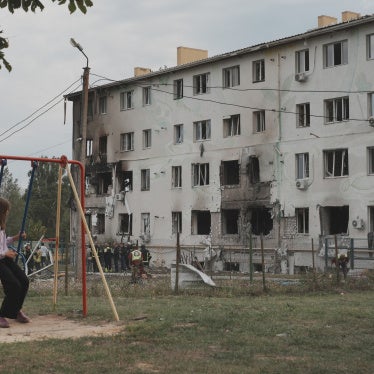Six years after the collapse of the Soviet regime, the government of the Central Asian republic of Uzbekistan continues to use intimidation and censorship to stifle free expression in the media. In Uzbekistan: Violations of Media Freedom, released today, Human Rights Watch/Helsinki condemns these repressive measures as gross violations of international free speech standards and even of the country's own laws.
"Soviet-style restrictions on what can be broadcast or published are so tight that news reporting is reduced to empty propaganda, and even important economic data is withheld from the public," said Holly Cartner, executive director of Human Rights Watch/Helsinki. "This is in an environment where media consumers have decreasing access to Russian Federation newspapers and television as the Uzbekistan authorities seek to reduce political criticism from outside."
The report contrasts Uzbekistan government promises of improved legal protections for journalists with reality, where newspapers, television and radio come under close scrutiny for their political content and are forced to adopt a uniformly loyal, uncritical line. Newspapers that breach these rules may be closed, and individuals who do so are fired or otherwise victimized. In one case, the editor of the Hurriyat newspaper was forced out of his job earlier this year after refusing to submit to government censorship. The opposition is not afforded any right to air its views or reply to virulent official attacks on it in the overwhelmingly state-owned media.
Apart from the international conventions on free expression to which it has become a party, Uzbekistan recently introduced legislation of its own setting out rights to obtain information and to practice journalism. "For the moment there's little hope that these moves represent anything more than window dressing," says Ms. Cartner. "Few journalists will dare claim their rights while working within such a repressive media environment." Past experience shows that the law is little respected in practice: for instance, the 1992 Constitution bans censorship, yet all national newspapers are scrutinized by a censor's office paid for and supervised by the government.
International donors have been slow to publicly criticize human rights abuses and specifically suppression of free speech in Uzbekistan. The result has been that the authorities gain approval by hosting internationally-sponsored seminars on the media while continuing to commit gross abuses with impunity. "It is time the international community demanded measurable improvements from the Uzbekistan government rather than accepting disingenous statements of goodwill. The Uzbekistan authorities themselves must be made to realize that censorship and persecution of journalism are unacceptable human rights violations," Ms. Cartner said.







